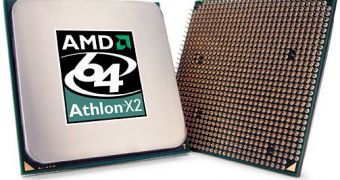After Advanced Micro Devices announced some time ago that it will manufacture and market a line of central processing units featuring an odd number of processing cores, the biggest processor manufacturer in the world, Intel, initially said that it will slowly but surely take the very same road in an attempt to both block and counter AMD and launch a new breed of processing units with performance levels and price tags situated between those of the dual and quad core offerings.
Now, it looks like Intel changed its mind again and, according to the news site xbitlabs, the chief technology officer from Intel says that the whole three-cored processor business is just an attempt to increase the amount of sold units. Even if Intel downplays AMD's interest in the new architecture, users are more than interested in the new line of products as they would be priced at a lower level than quad core processors while offering a quite high computing power and performance in just about all applications.
"I wouldn't make that much of it. This is a yield-improvement technique, plain and simple. IBM and Sony with their Cell processor - they have eight (processors) on that that chip, and they said, 'well, seven is the actually the number and one is a spare, or one is dead'. I'm never quite sure whether there's a dead one or not. It's just like memory chips today? There are thousands of spare memory bits that are there to ensure sufficient yield", said Intel's chief technology officer, Justin Rattner, who was cited by the xbitlabs site.
Some people may think that Intel is now distancing itself from the three core processing unit design as it simply does not have the capabilities to produce such processors as the AMD design goes for a monolithic approach that places four distinct and independent cores on a single silicon die, while the Intel quad core processors are going a different road that does not allow them to disable a single core or rebrand and reuse a processor with a defective core into a lower end product.
Even as Intel completely dismisses the three core processing unit design, the company may find itself in a pitched battle against AMD as the smaller outfit demonstrated already, on a number of different occasions that they can make a seemingly crazy idea work and even work better than Intel's own solutions.

 14 DAY TRIAL //
14 DAY TRIAL //